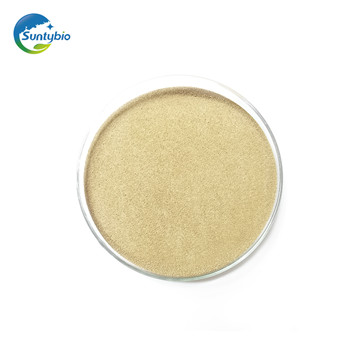Bacillus subtilis is a genus of bacteria in the genus Bacillus. These bacteria are found in a wide variety of environments, and most literature considers Bacillus spp. to be soil habitats. Interestingly, the prevalence of Bacillus species in soil may be due to the entry of bacterial spores into the environment via feces. Like many bacterial species, members of the genus Bacillus are capable of forming spores. Spores are the dormant form of the organism with little metabolic activity. These cells are able to resist harsh environments until conditions favorable for growth are sensed.
Bacillus Subtilis in Probiotics
Bacillus subtilis is of particular interest as a potential probiotic. Probiotics are ingestible bacteria that improve intestinal homeostasis, modulate immune function, produce compounds with systemic effects, and provide a number of benefits to the host. Since many of the bacteria that animals are exposed to in the gut are pathogenic, the presence of hydrochloric acid (HCl) in the stomach protects the body from pathogens by killing the "bad" bacteria. Spores survive in gastric HCl, which makes them particularly interesting as a component of probiotic formulas. Once in the small intestine, B. subtilis spores sense an environment conducive to proliferation and differentiate into active bacterial cells. It is here that these bacterial communities begin to multiply and provide benefits to the host.
Antibiotic Properties of Bacillus Subtilis
Many medicinal antibiotics are actually derived from natural compounds made by bacteria. Bacteria produce antibiotics to kill or inhibit the growth of competitors in their habitat. Bacillus subtilis strain 2335 produces a compound called aminocoumarin A, which is an effective antibiotic against Helicobacter pylori. Another Bacillus subtilis variant produced during soybean fermentation, Bacillus subtilis var. Natto, was shown to inhibit the growth of the pathogenic fungus Candida spp. Notably, Bacillus subtilis can provide some protection against pathogens. However, almost all studied subtypes have little or no antibiotic resistance. Therefore, supplementation with probiotics before and after Bacillus subtilis use may be more effective compared to the use of antibiotics.
Role of Bacillus Subtilis on the Immune System
In addition to producing compounds for defense against pathogens, Bacillus subtilis has been shown to enhance the immune system of the host. Secretory IgA (SIgA) is an immunoglobulin responsible for the protection of the gastrointestinal and respiratory tracts against pathogens.
Beneficial Effects of Bacillus Subtilis on Intestinal Health
The importance of the GI tract in overall health and well-being has been a very popular area of research in recent years. Several studies have revealed the beneficial effects of Bacillus subtilis on intestinal health. The gut-associated lymphoid tissue (GALT) lines the GI tract and is an important component of the immune system, acting as a barrier to pathogens. In a study conducted on rabbits by Rhee et al. (2007), researchers found that Bacillus subtilis was not only beneficial to GALT function, but may be necessary for proper GALT development.Another study conducted by Williams (2007) found that Bacillus subtilis protected intestinal epithelial cells from oxidative damage. Bacteria use a mechanism called population sensing to communicate with each other. Usually, population sensing involves one bacterial cell releasing small particles that are sensed by another bacterial cell. b. subtilis releases a molecule called competence/spore-producing stimulating factor (CSF) to communicate with nearby cells.
Studies conducted on Bacillus subtilis as a probiotic suggest that it may be effective in enhancing immune activity, protecting the body from pathogens, and improving intestinal health. Bottom line: as spore-forming bacteria, Bacillus subtilis can survive the harsh environment of the stomach and then colonize the small intestine and pass on its benefits to the host!
Please contact us if you need more information.

评论
发表评论